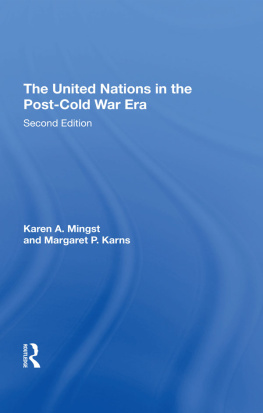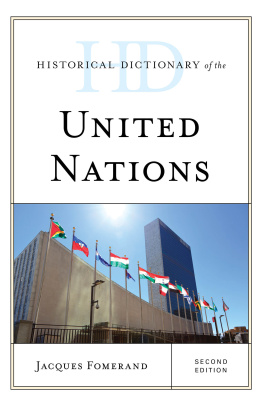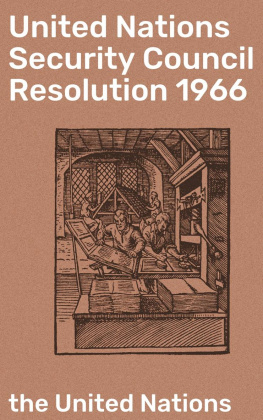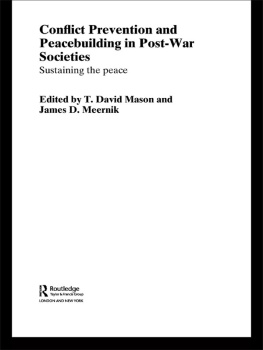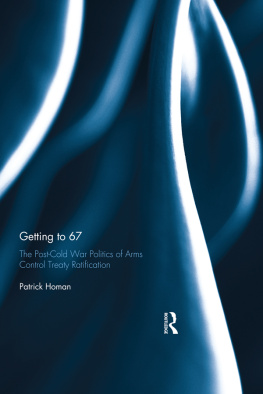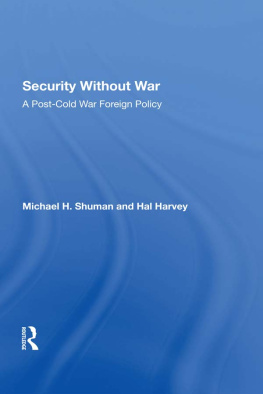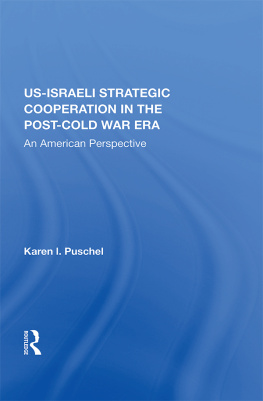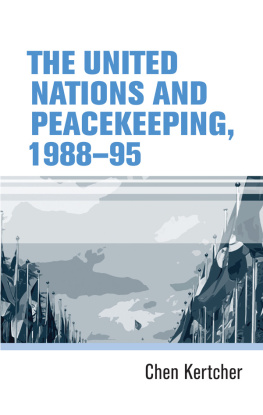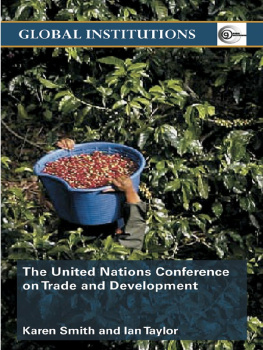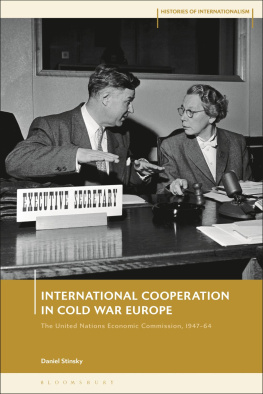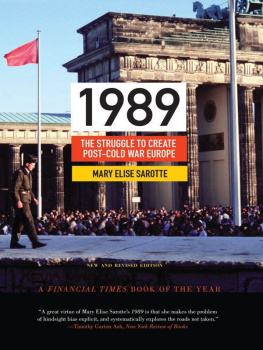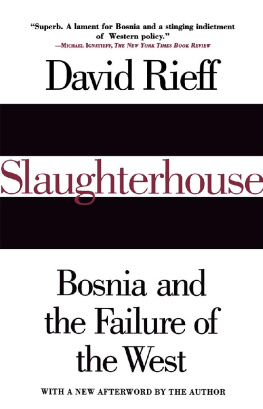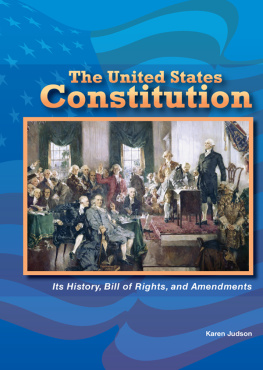DILEMMAS IN WORLD POLITICS
Series Editor
George A. Lopez,
University of Notre Dame
Dilemmas in World Politics offers teachers and students in international relations a series of quality books on critical issues, trends, and regions in international politics. Each text examines a real world dilemma and is structured to cover the historical, theoretical, practical, and projected dimensions of its subject.
Editorial Board
Jeffry Frieden
Harvard University
Deborah J. Gerner
University of Kansas
Vicki Golich
California State UniversitySan Marcos
Lev Gonick
Wilfrid Laurier University
Barbara Welling Hall
Earlham College
Elizabeth C. Hanson
University of Connecticut
Barry Hughes
University of Denver
Janice Love
University of South Carolina
Vincent Mahler
Loyola of Chicago
Zeev Maoz
Tel Aviv University
Karen Mingst
University of Kentucky
Frederic Pearson
Wayne State University
V. Spike Peterson
University of Arizona
Neil Richardson
University of WisconsinMadison
Martin Rochester
University of MissouriSt. Louis
Georg Srensen
Aarhus University (Denmark)
Harvey Starr
University of South Carolina
Michael Stohl
Purdue University
Douglas Stuart
Dickinson College
Donald Sylvan
Ohio State University
Sarah Tisch
Winrock International
John Vasquez
Vanderbilt University
BOOKS IN THIS SERIES
The United Nations in the Post-Cold War Era,
Second Edition
Karen A. Mingst and Margaret P. Karns
International Futures:
Choices in the Face of Uncertainty, Third Edition
Barry B. Hughes
International Human Rights, Second Edition
Jack Donnelly
Global Gender Issues, Second Edition
Spike Peterson and Anne Sisson Runyon
Democracy and Democratization in a Changing World
Georg Srensen
Dilemmas of International Trade
Bruce E. Moon
Humanitarian Challenges and Intervention
Thomas G. Weiss and Cindy Collins
Revolution and Transition in East-Central Europe, Second Edition
David S. Mason
Global Environmental Politics, Second Edition
Gareth Porter and Janet Welsh Brown
One Land, Two Peoples, Second Edition
Deborah Gerner
Ethnic Conflict in World Politics
Ted Robert Gurr and Barbara Harff
Dilemmas of Development Assistance
Sarah J. Tisch and Michael B. Wallace
East Asian Dynamism, Second Edition
Steven Chan
First published 1990 by Westview Press
Published 2019 by Routledge
52 Vanderbilt Avenue, New York, NY 10017
2 Park Square, Milton Park, Abingdon, Oxon OX14 4RN
Routledge is an imprint of the Taylor & Francis Group, an informa business
Copyright 1990 by Taylor & Francis
All rights reserved. No part of this book may be reprinted or reproduced or utilised in any form or by any electronic, mechanical, or other means, now known or hereafter invented, including photocopying and recording, or in any information storage or retrieval system, without permission in writing from the publishers.
Notice:
Product or corporate names may be trademarks or registered trademarks, and are used only for identification and explanation without intent to infringe
Library of Congress Cataloging-in-Publication Data
Mingst, Karen A., 1947-
The United Nations in the post-Cold War era/Karen A. Mingst, Margaret P. Karns.
2nded.
p. cm.(Dilemas in world politics)
Includes bibliographical references and index.
1. United Nations. 2. International cooperation. 3. International relations. 4. Security;
International. I. Karns, Margaret P. II. Title. III. series.
JZ5005 .M561999
99-048946
341.23dc21
ISBN 13: 978-0-367-29693-3 (hbk)
In undertaking the revision and updating of this book, we have changed far more than we imagined when George Lopez, editor of the Dilemmas in World Politics series, first approached us in early 1998 about doing a second edition. We wish to thank him and Leo Wiegman of Westview Press for encouraging us. We particularly wish to thank users of the first editionboth faculty colleagues and studentswho provided critical feedback and helpful suggestions. Much has happened in the world and in the United Nations system since the first edition was published in 1995, necessitating substantial changes in the analysis of the UNs postCold War role. During the spring of 1998, Margaret Karns had the opportunity while teaching a training course on the UN system at the Institute for International Relations in Hanoi, Vietnam, to observe the UN in operation in that country, and the book has benefited from the conversations, data, and insights she gathered.
We wish to dedicate this second edition to our parents, Richard and Edna Mingst and Norman and Helen Padelford, whose generation had the foresight to create the United Nations, and to our children, Ginger, Brett, and Paul, whose generation must sustain it in the new millennium. Finally, we wish to thank our husbands, Robert Stauffer and Ralph Johnston, whose patience, support, and encouragement have enabled us to juggle many roles and to bring this book to fruition.
Karen A. Mingst
Margaret P. Karns

